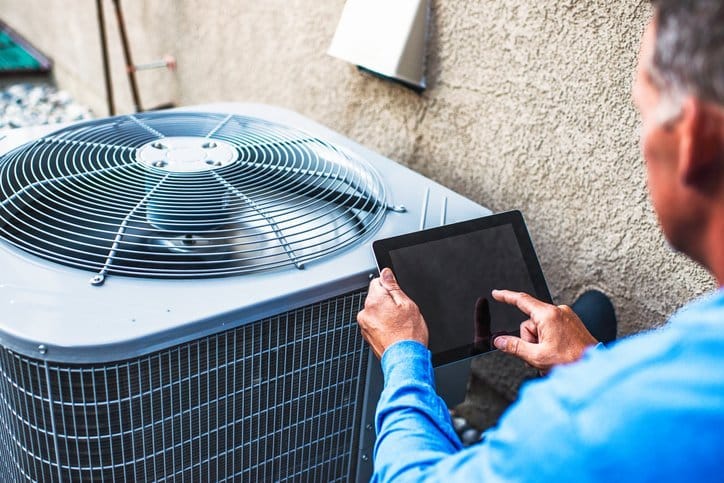Picking the best HVAC contractor is a critical step in ensuring your home's heating and cooling systems function optimally and successfully. Whether setting up a brand new system, replacing an outdated one, or merely maintaining your current setup, the contractor you select can make all the difference. With so many choices available, it can be overwhelming to find a capable professional who meets your specific needs.
In this manual, we will guide you through key considerations to assist you select the ideal HVAC contractor for your home. From grasping what HVAC systems are to acknowledging the value of indoor air quality, you will gain insights into how to arrive at informed decisions. Additionally, we will investigate common HVAC issues and their resolutions, seasonal maintenance guidelines, and how to maximize your system's efficiency, all of which are essential aspects to take into account when evaluating potential contractors.
Understanding HVAC
HVAC is an acronym for Heating, Ventilation, and Air Conditioning. see page is the technology used for the system used to control the interior environment of residential and business spaces. An Heating, Ventilation, and Air Conditioning unit is designed to provide a pleasant atmosphere by controlling temperature, moisture levels, and air conditions, making it crucial for preserving a wholesome and comfortable atmosphere. Knowing the components of heating, ventilation, and air conditioning systems aids resident owners and establishments make educated decisions about implementation, upkeep, and upgrades.
The main components of an Heating, Ventilation, and Air Conditioning setup are comprised of a furnace or furnace for heating, an AC unit for temperature reduction, and ventilation for air distribution and filtration. These components collaborate to ensure that the environment in a building is satisfactory, adequately circulated, and clean of pollutants. In addition to climatic control, heating, ventilation, and air conditioning units can also control humidity levels and filter out dust, pollen, and other contaminants to boost indoor air quality.
Routine service is important to the efficiency and longevity of an Heating, Ventilation, and Air Conditioning setup. It involves routine checkups, servicing, and appropriate repairs to stop frequent difficulties such as malfunctions or performance issues. Homeowners and commercial property owners should be proactive in their heating, ventilation, and air conditioning maintenance to not just guarantee satisfaction but also to reduce energy bills and prolong the term of their units. Understanding how heating, ventilation, and air conditioning works is the first step in identifying when it requires care and how to choose the right professional for the job.
Typical Heating, Ventilation, and Air Conditioning Problems and Resolutions
A common HVAC problems is insufficient heating or cooling. This can arise due to a number of factors, including clogged air filters, duct leaks, or improper thermostat settings. To tackle this problem, regularly check and replace air filters every one to three months and ensure that vents are not blocked. If the issue persists, it may be required to check the ductwork for leaks or have a specialist examine the efficiency of your heating and cooling system.
Another common issue is odd noises from the HVAC unit. These sounds can suggest a number of problems, from loose components to significant mechanical failures. Pay close attention to any thumping, rattling, or piercing whistling noises. If you notice these sounds, it is recommended to turn off the system and consult a licensed HVAC contractor to correctly diagnose and address the issue before it results in more significant damage.
Finally, poor indoor air quality can profoundly influence your comfort and health. Symptoms like allergies, respiratory issues, or stale air may signal that your HVAC system needs servicing. To improve air quality, explore upgrading to high-efficiency air filters, adding air purifiers, or ensuring that your system is properly cared for with regular cleanings. Boosting ventilation and humidity control can also result in a healthier indoor environment.
Opting for the Right HVAC System
Selecting the suitable HVAC system for your house can be crucial for maintaining comfort while ensuring energy effectiveness. Start with evaluating your size for the environment, since a suitable heating & cooling system should align with your square footage in your home. An inadequate system can fail in maintaining satisfactory temperatures, while an oversized system can lead to rapid cycling, higher wear and tear, and elevated energy bills. Consulting the professional for calculate your appropriate size using a load calculation can help you make an informed decision.

Then, think about various varied types of HVAC systems that are available. Options consist of whole-house air units, heat pumps, ductless mini-split systems, along with geothermal heating & cooling. Every option has its advantages & limitations based on your home’s layout, climate, as well as energy efficiency targets. Investigating these choices can help you understand what system best serves their lifestyle and budget and providing effective heating as well as cooling.
In conclusion, consider regarding energy efficiency ratings when choosing the HVAC system. Search for units with high Seasonal Energy Efficiency Ratio (SEER) ratings for air conditioners and Heating Seasonal Efficiency Factor (HSPF) ratings in the case of heat transfer systems. Energy-efficient systems might come with a higher upfront cost yet can lead to significant savings on the energy bills over time. Combining energy-efficient devices with smart thermostat technology can increase the HVAC solution's performance and comfort levels across seasons.
